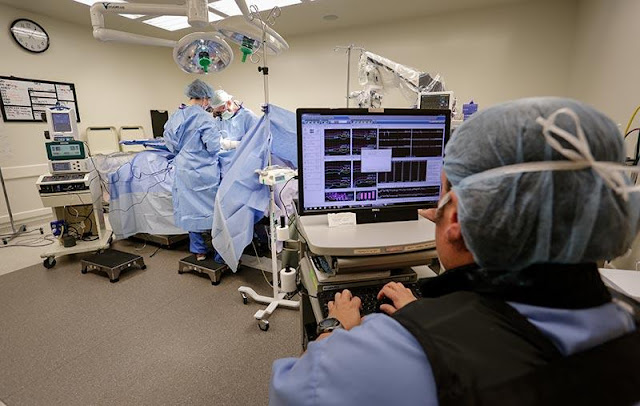Intraoperative Neuromonitoring Has Been Proven To Reduce the Occurrence of Neurological Damages during the Surgical Procedure
Intraoperative Neuromonitoring (IONM) is an essential component of the safety of a surgical procedure. During the surgery, the patient's nervous system is monitored, and if any changes occur, the neuromonitor will alert the surgeon. This gives the surgeon a chance to correct any problems, or prevent them from occurring. IONM has been proven to reduce the occurrence of neurological damages during the surgical procedure. It also provides the surgeon with information that can help in focusing on a particular clinical evaluation, such as imaging.
The use of IONM is often recommended during spine surgery. During this type of procedure, nerve impulses are delivered to the patient's spinal cord and brain. An IONM team monitors the activity of these areas during the operation, and the information provided is immediately shared with the anesthesiologist.
During a surgical procedure, a neurotechnologist places electrodes on the patient's body, such as the legs or wrists, and records the responses of these muscles to a stimulus. A computer then analyzes this information. The IONM team works with the anesthesiologist to determine if any changes have occurred and, if so, what they are. In some cases, the Intraoperative Neuromonitoring team can even provide feedback to the surgeon and nurse.
The use of IONM is estimated to be used in about 750,000 surgical procedures in the United States each year. Although not yet legislated in most states, many health care facilities have internal regulations for the certification of neuromonitors. These professionals must meet specific standards of training and experience, including a bachelor's degree.
In 2016, the Intraoperative Neuromonitoring Market was estimated to be worth US$ 2,632.4 million. Over the next five years, it is anticipated to grow at a strong CAGR of 6.53%. (2017 - 2025).
While most surgeons have low complication rates, there are some cases when the risk of an injury to the brain, spinal cord, or nerves is high. These cases are more likely to require IONM. These situations may include a patient who suffers a stroke or paralysis, or a patient who has undergone a difficult spinal surgery. In such instances, a neuromonitor can provide crucial information that can lead to a positive outcome. In September 2022, Brainlab, a digital medical technology company acquired Dr. Langer Medical GmbH, based in Germany and specializing in the development of intraoperative neuromonitoring solutions.




Comments
Post a Comment